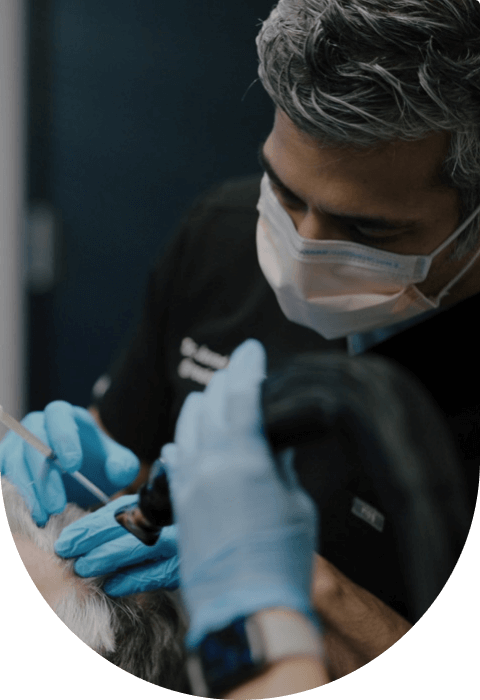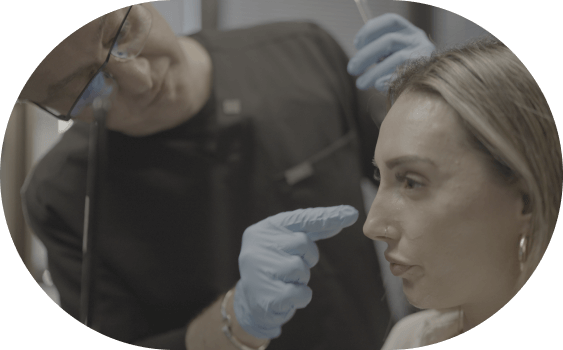
Botox & Filler Hands-On Training Classes Physician Assistants
Botox & Filler Certification
Physician Assistants (PA) can perform more advanced procedures and treatments. Whether it's something offered on the weekends or part of building a larger practice, Botox and filler certification provides Physician Assistants with the opportunity to expand their already vast medical knowledge and skills to include medical aesthetics.
The American Academy of Cosmetic Medicine (AACM) offers Physicians Assistants Botox and filler training courses with the potential for certification.


Becoming A Certified Cosmetic Injector
Physician Assistants—with the exception of a few states—cannot practice fully independently. However, this usually involves seeing and treating their own patients. While PAs can perform a variety of advanced procedures, states do require proof of adequate Botox and filler training. Earning this with AACM opens up more opportunities for Physician Assistants, specifically opportunities outside of a traditional hospital and clinic setting.
Getting certified to perform aesthetic injections starts with enrolling in one of AACM’s training courses. These courses include lectures, demonstrations, and hands-on segments that make it one of the most comprehensive courses available. Upon completion of the course and passing the examination, the student is then certified.
The American Academy of Cosmetic Medicine is taught by physicians who still perform cosmetic injections daily. Not only do they have years of experience, but they also know and understand the most advanced techniques and procedures.
Benefits For PAs
Botox and dermal fillers integrate well with the day-to-day routine of a medical office. They also do not add significant time to procedures and do not necessarily require a separate appointment. The benefit is not only for the providers, but also for the patients who often find getting Botox and fillers done at an existing medical appointment convenient and less painful. Other benefits for physician assistants and patients include:
- Earn additional credentials
- Gain trust from peers and patients
- Work outside of a hectic hospital or medical environment
- See patients at their best
- Immediate results allow PAs to see patient outcomes
- Opportunities for career advancement
- Continued, lifelong education
- Work in a smaller, calmer environment
- Build lasting relationships with patients
- More positive patient interactions and experiences
- Improve work-life balance
- Balances art and science knowledge and skills
- Leave exploitative working conditions
- Supplement income if staying in the traditional medical field
Botox & Filler Certification Courses For Physician Assistants With AACM

The American Academy of Cosmetic Medicine offers two certification courses. Physician Assistants can enroll in either course to become certified and gain hands-on experience with Botox and fillers.
 Beginner
Beginner
The beginner course goes beyond the basics of Botox and filler. It also will give nurses the knowledge necessary to fully advise their patients on important treatment decisions and identify good candidates. The beginner course curriculum includes:
- Learn fundamentals of facial anatomy as they relate to neurotoxins and dermal fillers
- Learn about the aging process and the importance of neurotoxins and dermal fillers for delaying or reversing the signs of aging
- Become familiar with the basics of neurotoxins and the structural/functional differences between the different options
- Become familiar with the basics of dermal fillers and the structural/functional differences between the different options
- Determine the proper indications for neurotoxins and dermal fillers on various areas of the face
- Learn how to study, mark the face, and choose injection points for common injection treatments
- Learn how to prepare neurotoxins
- Identify and implement techniques for preparing the patient and managing pain related to the injection
- Take part in hands-on training with 30 units of Botox and/or 90 units of Dysport. Additional units available for purchase for training at a discounted rate
- Take part in hands-on training with one syringe of Restylane and/or Juvederm filler. Additional syringes are available for purchase
- Live 4 shadow days of Dr. Sajan or Dr. Khezri.
 Cost: $2,600
Cost: $2,600
 Comprehensive
Comprehensive
The Comprehensive course builds off the beginner course or base knowledge of Botox and fillers which is ideal for many physicians. This two-day, weekend course covers more advanced and off-label cosmetic injections. The curriculum includes:
- Discuss how to manage difficult patients or patients with unrealistic expectations
- Learn how to treat complex facial anatomy in patients with pre-existing asymmetry as well as higher risk patients
- Learn about the indications, uses, and proper techniques for injecting non-dissolvable fillers such as Sculptra
- Identify when to use a cannula or needle for injections and learn the proper technique for each
- Gain knowledge and experience in advanced neurotoxin injections such as masseters, hyperhidrosis treatment, platysmal bands (Nefertiti lift), shoulder feminization, jaw slimming, gummy smile treatment, and headache/migraine treatment
- Gain knowledge and experience in advanced dermal filler injections such as chin augmentation, jawline enhancement, temples, advanced lip filler techniques, etc.
- Learn to manage the side effects of neurotoxins and dermal fillers
- Learn about the business aspect of becoming an injector, how to produce revenue with minimal overhead costs, and how to take the road to success
- Participate in hands-on training with 30 units of Botox and/or 90 units of Dysport. Additional units are available to purchase during training at a discounted rate
- Participate in hands-on training with one syringe of Restylane and/or Juvederm filler. Additional syringes available for purchase
 Cost: $5,000
Cost: $5,000
Exam
Following either course, students can take the certification exam. The text consists of a written portion and an oral exam. If students pass, they become certified fellows of the American Academy of Cosmetic Medicine. If a student fails, they can retake the test up to four times per year for free.


Certification
Once certified, Physician Assistants can add FAACM to their list of credentials next to PA. Fellows also pay $99 per month to maintain their certification and support AACM’s education efforts. Fellows are given 24/7 access to expert injectors who are instructors of the AACM to discuss difficult cases, complications, and clinical care.
You will receive a phone number and email that you can contact at all times 365 days per year. Fellows also earn access to AACM’s additional educational materials which they can access at any time online.
Frequently Asked Questions
Can Physicians Assistants Open Their Own Medical Spa?
Yes, however, it depends on the state whether the Physician Assistant can practice independently. Some states simply require a physician to act as a medical director and someone who is nearby in case of emergencies. Other states have specific regulations on the percentage of ownership between a PA and a physician. Every state is different and thus the student needs to know the scope of practice in their state.
How Long Is A Botox Course?
At the American Academy of Cosmetic Medicine, the beginner course consists of an eight to ten hour training course completed in one day. The comprehensive course is two eight to ten hour days.
Can Students Bring Their Own Models Or Be A Model?
Yes, students are welcome to bring a model. It is best if a student does not serve as a model so that they can get as much practice as possible. Though, it may be possible in certain circumstances.
Choosing The American Academy Of Cosmetic Medicine
With The American Academy Of Cosmetic Medicine
The American Academy of Cosmetic Medicine welcomes in-state, out-of-state, and international students to take one of their courses and become certified cosmetic injectors.
To learn more or register for a course, contact us and a member of the team will reach out.